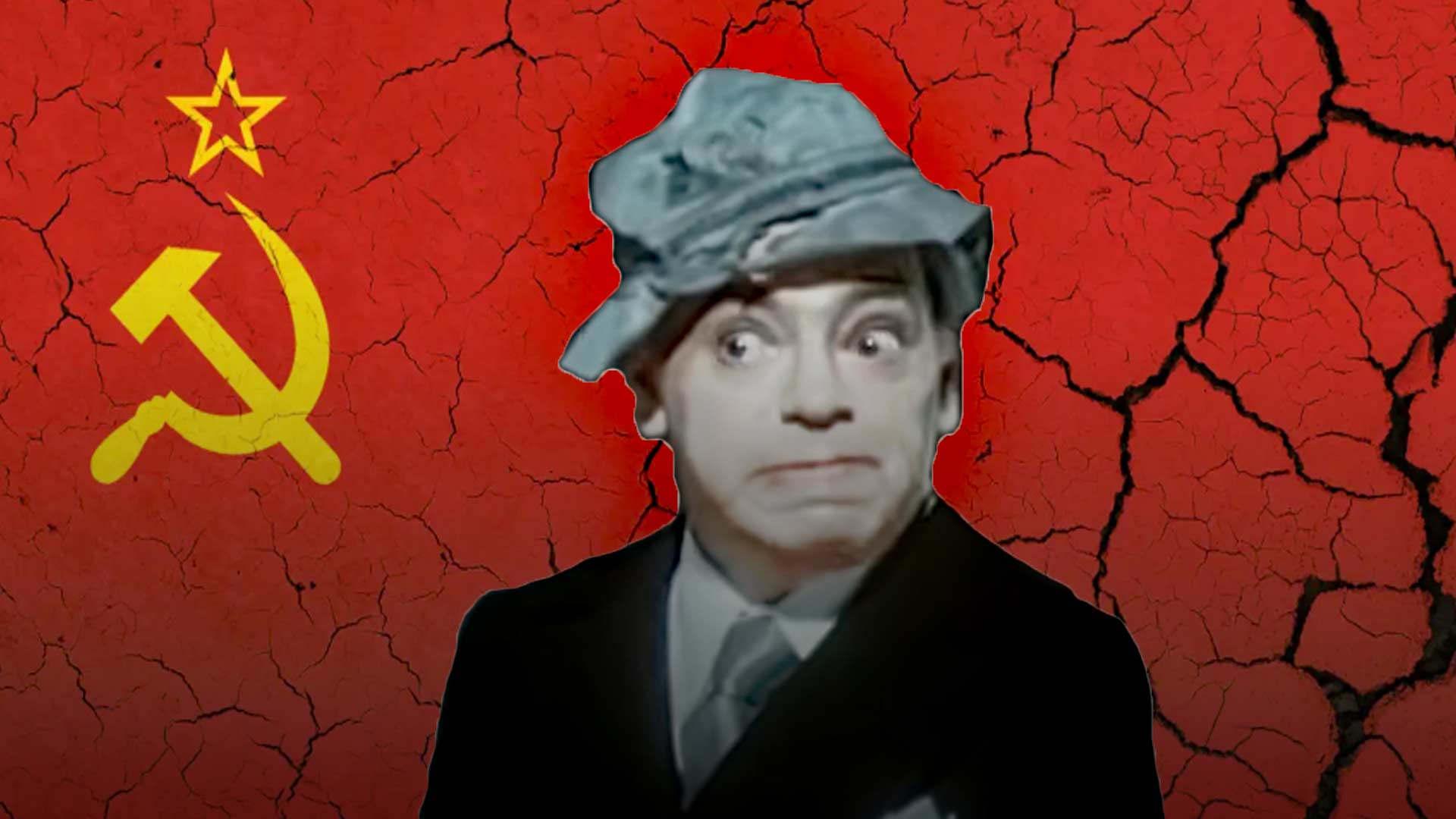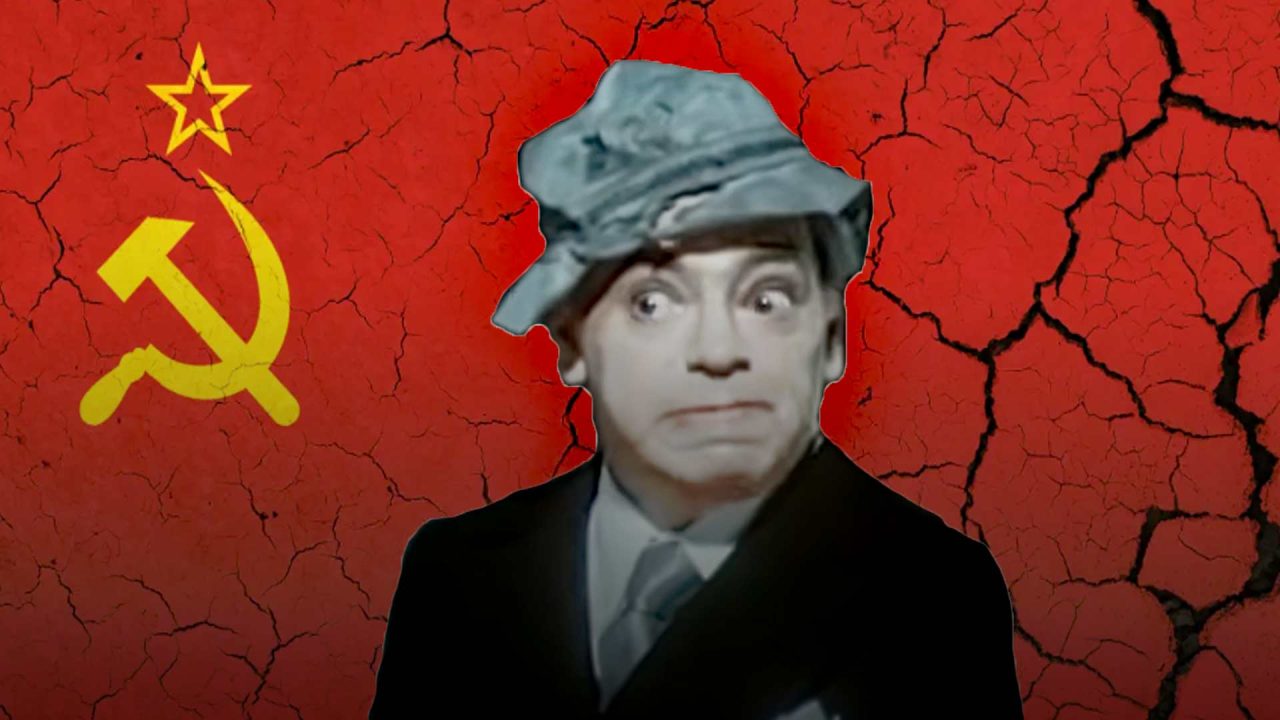
Laughter and humor are strong medicine; they draw people together in ways that trigger healthy physical and emotional changes in people’s mental and physical conditions. Certainly, humor is the best understood in historic and cultural contexts.
Arkady Raikin (1911–1987) was a Soviet stand-up comedian and variety-show entertainer—the most popular and respected Soviet humorists of the 20th century (like great comedians in the United States – Johnny Carson, George Carlin, Lenny Bruce, and Rodney Dangerfield.
From his home base in Leningrad (known today as St. Petersburg), he toured the former Soviet Union and occasionally went abroad. During WWII (1941-1945), Raikin performed numerous times at the front line for the Soviet soldiers. In 1984, he moved his comedy company to Moscow and reopened it as the Satirikon (satire) theatre.
In his comedies, Raikin deftly ridiculed bureaucracy, official rudeness and corruption, Soviet inefficiency, consumer shortages, political wariness, various black-market shenanigans, and other daily practices of the socialist Soviet life, but never Soviet politics and ideology. He used skits, monologues, and impersonations in his performances.
In fact, satire was allowed by the Soviet government (e.g., a popular Soviet journal Krokodil—Crocodile), if it did not criticize Soviet politics and Marxist-Leninist ideology. Despite the sensitive subjects and his being a Jew in an anti-Semitic era in the former Soviet Union, Raikin was celebrated both popularly and officially; he received the title People’s Artist in 1968 and the highest civilian award, Hero of Socialist Labor, in 1981.
Although he was born and raised in Riga, Latvia, Odessa was his favorite city in the Soviet Union. Odessa is a port city on the Black Sea in today’s southern Ukraine. It’s known for its beaches and 19th-century architecture, including the Odessa Opera and Ballet Theater. The modern building was constructed by Fellner and Helmer architects in neo-baroque (Vienna Baroque) style and opened in 1887.
The culture of Odessa is a unique blend of Russian, Yiddish (language of the Ashkenazy Jews), and Ukrainian cultures and languages; Odessa itself has played a notable role in Russian and Yiddish folklore. The Russian language spoken in Odessa, likewise, is influenced by Yiddish and Ukrainian grammar, vocabulary and phraseology. As a result, many phrases sound inherently and uniquely humorous to Russian speakers and constitute a common theme of Odessa humor.
So, Odessa humor is a notable part of both Jewish and Russian humor (comparable to Brookline humor and speech patterns in New York). Since 1972, Odessa has been hosting the annual festival of humor – Humorina. For this and other reasons, Odessa was known as the “Capital of Humor” in the former Soviet Union.
ALASKA WATCHMAN DIRECT TO YOUR INBOX
In the early 1970s, Arkady Raikin performed in Odessa for the entire month. On the day of his arrival, he ordered a pair of trousers from Odessa’s well-known man’s tailor – Isak Shapiro. The tailor was honored to fulfill the order for such a prominent comedian. During the 30 days of Raikin’s performance in Odessa, Shapiro called the great comedian eight times for fitting his trousers.
Finally, at the end of Raikin’s month of Odessa performances, his trousers were tailored. When Raikin received his trousers, he noted with a playful smile, “Look, Shapiro, God created the World in seven days, and it took you 30 days to tailor my trousers.”
Then, the tailor squinted his trickery eyes, waved his arms wide open and replied,” Mr. Raikin, look at today’s crazy World and look at these gorgeous trousers!”
Indeed, in today’s a socially divided and politically tense world, a touch of humor is a drive and cure for peaceful reconciliation and social justice; a small perfection is in the people’s doable reach rather than a hypothetical perfect World in the uncertain horizon.
The views expressed here are those of the author.







2 Comments
Thank you again, Professor, for your “change” thoughts and sharing.
Your articles are a welcome relief. Thank you.